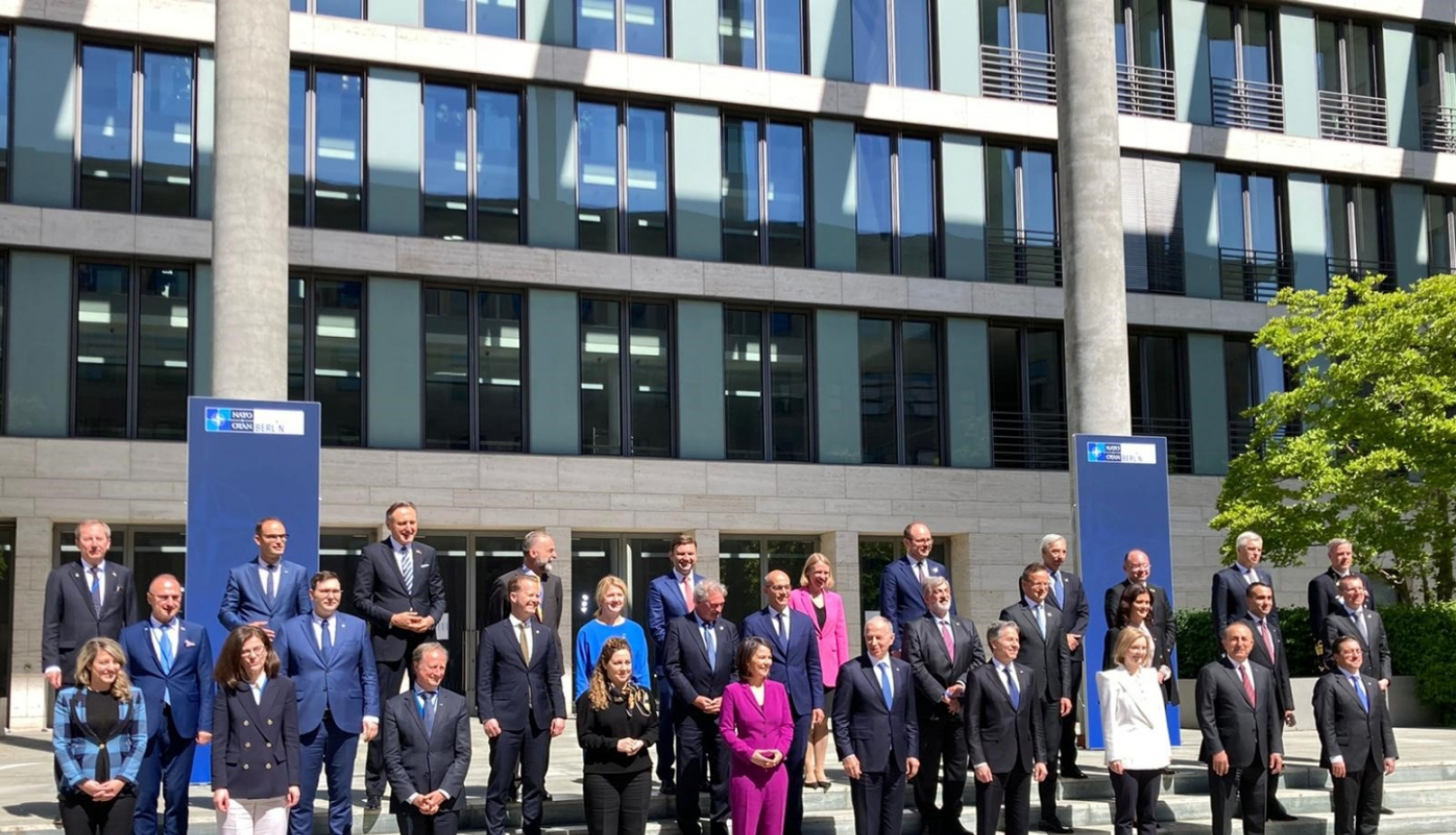In view of threat created by Russia and its confrontational policy in the region, firm and concrete decisions must be taken at the NATO Summit in Madrid concerning the strengthening of security in the eastern flank. This was underlined by the Minister of Foreign Affairs of Latvia, Edgars Rinkēvičs, at an informal meeting of NATO Ministers of Foreign Affairs in Berlin, on 14-15 May 2022.
The informal meeting of NATO Ministers of Foreign Affairs in Berlin was convened to discuss the relationship of Finland and Sweden with NATO, support for Ukraine, and the strengthening the Alliance’s deterrence and defence. The Ministers also exchanged views on preparations for the NATO Summit and on the Strategic Concept of the Alliance.
As concerns the work ahead of the Meeting of NATO Heads of State and Government to be held in Madrid from 28 to 30 June 2022, Edgars Rinkēvičs noted that further efforts should be made to increase the member states’ defence expenditure in order to mobilise adequate financing for full implementation of the Alliance’s tasks in the present-day strategic environment. The speed of adjustment must be sustained to achieve that NATO’s adaptation over the next decade is successful, Edgars Rinkēvičs stated.
It is important for Latvia that the upcoming NATO Strategic Concept reflect the current security environment, its challenges and threats realistically and without illusions. In Latvia’s opinion, the concept should outline the elements such as Russia’s threat to the Alliance in the long-term, a focus on collective security as NATO’s principal mission, the Alliance’s further political and military adaptation, transatlantic unity, challenges created by new technologies, cooperation between NATO and the EU, and commitment to an open-door policy. It is in Latvia’s interests for the Strategic Concept to clearly point out that the defence of the region’s territory and deterring Russia calls for fundamental changes in NATO’s deterrence and defence posture.
In a discussion on Russia’s war in Ukraine, the Latvian Foreign Minister said that Russia was causing existential threat to security in the Euro-Atlantic space. Edgars Rinkēvičs underlined that the threat posed by Russia could not be expected to decrease in the coming years. Therefore, it was important for NATO’s long-term deterrence and defence to be adapted to the new strategic reality and current security challenges. A more robust presence of NATO allied forces is needed in each of the Baltic States, which would include reinforcement with anti-aircraft and missile defence systems and other capabilities critically lacking in the region, Edgars Rinkēvičs noted.
At their informal meeting in Berlin, NATO Ministers of Foreign Affairs also were briefed by their Finnish and Swedish colleagues about the national security reports prepared by the governments of those countries. The Latvian Foreign Minister expressed support for Finland and Sweden being accepted into the Alliance as soon as possible, which would considerably facilitate security in the Baltic Sea region and across NATO’s eastern flank, as well as enhancing the Alliance’s deterrence and defence capabilities. In Minister Rinkēvičs’ opinion, Finland and Sweden are NATO’s closest partners with professional, capable armed forces that meet NATO standards. Latvia stands up for the accession of those countries of the Alliance in view of their geographical location, current cooperation, and a similar understanding of threats.




